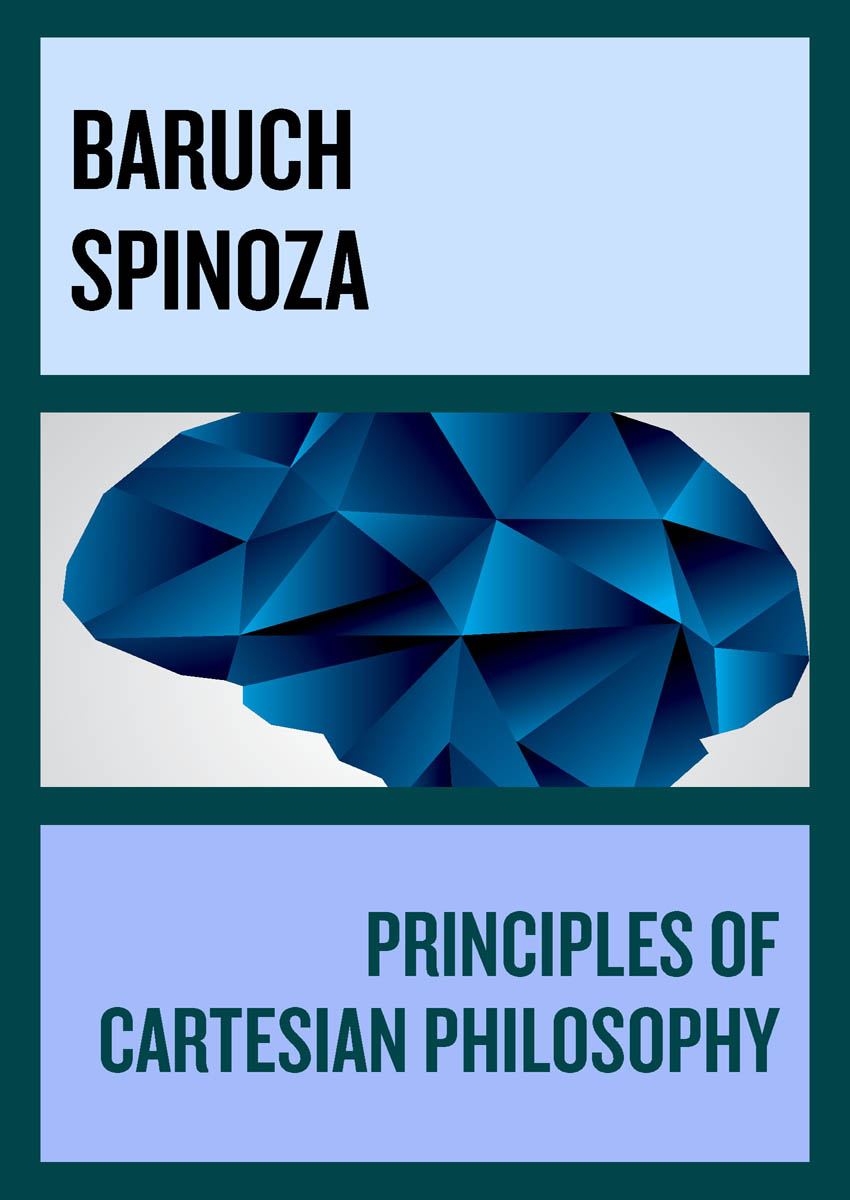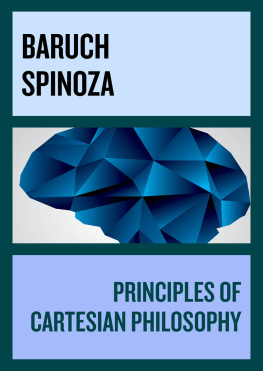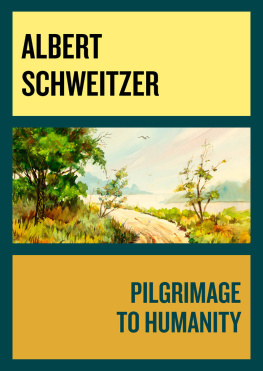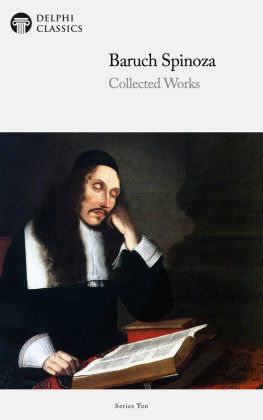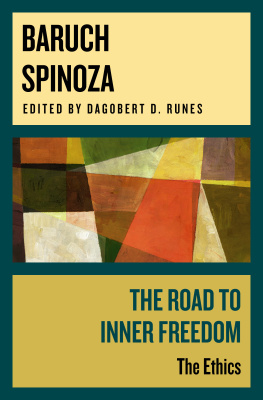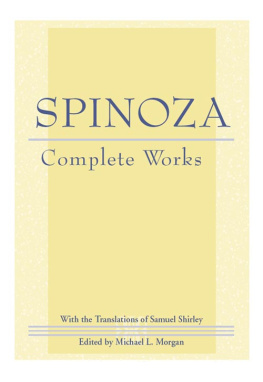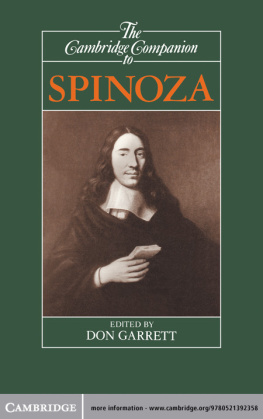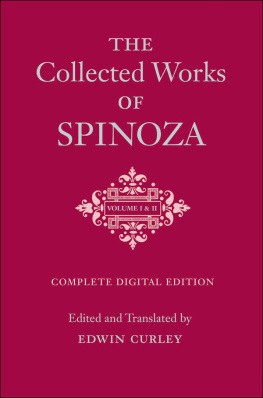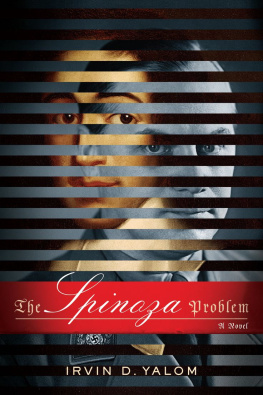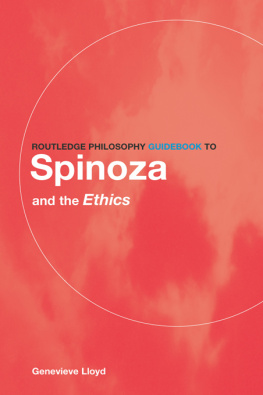INTRODUCTION
Before entering upon the propositions themselves and their proofs, it seemed fitting to offer a succinct explanation why Descartes questioned everything, in what manner he discovered the firm foundations of knowledge, and finally by what means he freed himself from all his doubts. All this matter we should certainly have reduced to a mathematical orderliness, had we not considered the prolixity necessary for its presentation a hindrance for a proper understanding of the entire subject that ought to be viewed, as in the case of a picture, by a comprehensive survey.
Descartes, then, proceeding with the utmost caution in the investigation of nature, attempted:
to reject all pre-conceived notions;
to find the bases for all necessary superstructures;
to discover the cause of error;
to understand everything clearly and distinctly.
In order to attain the first, second, and third objectives, he proceeds to question everything; not indeed as a skeptic, for whom the final end is nothing but doubt, but with a view to freeing his mind from all pre-conceptions and hence to discover ultimately the solid and irrefutable bases of knowledge that he could not fail to discover, if such exist. For the true principles of knowledge must be so lucid and convincing that they require no proof, exclude all risk of doubt, and make any proof impossible without them. After prolonged doubt, Descartes discovered such principles. Upon their discovery, it was not difficult for him to distinguish truth from falsity, to discover the cause of error, and furthermore to take precautions not to assume what is false and doubtful as truth and certainty.
To reach the fourth and last objective, that is, to understand clearly and distinctly, his principal rule was to review all the simple ideas, of which all the others are composed, and to examine them severally. For if he could perceive simple ideas clearly and distinctly, he would doubtless understand all the other ideas composed of these simple ones, with the same clarity and perspicuity. With these preliminary remarks, we shall briefly explain how Descartes called everything into question, found the true principles of knowledge, and liberated himself from the difficulties of doubt.
Universal Doubt
First of all he considers all things perceived by the senses, namely: heaven, earth, and such notions, and even his own person; all these things he had until then believed to exist in the scheme of Nature. And he doubts their certainty, because his own senses had sometimes deceived him and in his dreams had often convinced him that many things really had an objective existence that he had afterward discovered to be illusory; and finally because he had heard others, even in waking moments, assert that they felt pain in limbs that they had long since lost. Therefore it was not without reason that he was able to doubt the existence even of his own body.
From all these circumstances he was able to deduce rightly that the senses were not a very strong foundation on which to build the superstructure of all knowledgefor they can be called in questionbut that certainty depends on other, more convincing principles. To pursue such speculations further, he next considers all the universals, such as material nature in general and its extent, likewise shape, quantity, and so on, and also all the mathematical truths. Although these ideas seemed to him more convincing than all those that he had experienced by the sense, he still found a reason for doubting them; since others too had been mistaken about them, and particularly since a certain old notion had been implanted in his mind that a God existed, all-powerful, by whom he had been created just as he was, and who had perhaps made it possible for him to be deceived about those ideas that seemed very clear to him. By this means he questioned everything.
Discovery of the Basis of All Knowledge
To discover the true principles of knowledge, he investigated next whether he had called into question everything that could come within his thought: thus he would examine whether there was not something left perhaps that he had not yet doubted. If indeed he found anything, by such a method of doubting, that could not be called in question for any of the preceding reasons, or for any other reason, he rightly considered that he could accept it as a basis on which to build the superstructure of all his knowledge. And although he now appeared to doubt everythingfor he had doubted equally both the notions that he had received through the senses, and those that he perceived through comprehension onlystill there was something left to be examined, namely, himself who doubted thus; not in so far as he was composed of a head, hands, and other members of the body, all matters of doubt; but only in so far as he doubted, thought, and so on.
After a careful examination, he realized that he could entertain doubt on this point for none of the previously mentioned reasons. For, whether the thinking process persists in sleep or in wakefulness, he still thinks and is; whether others were in error about other subjects, or even himself, none the less they existed, since they were in error. Nor could he imagine any author of his own nature, however cunning, who could deceive him in this regard; for it must be granted that he himself existed as long as he supposed himself to be deceived. Finally, whatever other cause for doubt might be conceived, none could be adduced that did not at the same time make him overwhelmingly certain of his own existence. Furthermore, adducing more reasons for doubt meant adducing also more proofs to convince him of his own existence. So much so, that wherever he turned to doubt, he was none the less constrained to exclaim: I doubt, I think, therefore I am .
With the discovery of this truth he likewise found the basis of all the sciences; and even a standard and rule for all the other truths, namely: Whatever is perceived as clearly and distinctly as this truth is true.
That no other basis for knowledge than this is possible is abundantly and more than sufficiently clear from what has preceded, since all the other notions can most readily be called in question, but this one cannot be questioned in any manner whatever. However, in regard to this principle, it must first of all be observed that the statement I doubt, I think, therefore I am is not a syllogism, whose major premise has been omitted. For, if it were a syllogism, the premises ought to have been clearer and better known than the conclusion itself, therefore I am : and so I am would not be the first basis of all knowledge; besides, it would not be a certain conclusion, for its truth would depend on universal premises that the author had long since called in question. So I think, therefore I am is a single proposition, equivalent to this one: I am a thinking being .
Furthermore, to avoid confusion in what follows (for the matter must be perceived clearly and distinctly), we must understand what we are. For, once this is clearly and distinctly understood, our being will not be confused with others. To deduce this therefore from what precedes, our author thus continues.
He recalls in memory all the thoughts that he once had regarding himself: that his soul was a subtle body similar to wind, fire, or air, pervading the thicker parts of the body; that his body was more familiar to him than his soul, and that he had a clearer and more distinct perception of it. He found that all this was manifestly at variance with what he had until then understood. For it was possible for him to doubt his body, but not his existence in so far as he could think. Moreover, not perceiving this clearly or distinctly, he consequently had to reject it as false, according to the method that he had proposed for himself. Hence, since he could not, considering what he already knew of himself, recognize the relation of these questions to himself, he proceeded to investigate further what properly belonged to his being, what he had been unable to doubt, and on account of which he was forced to affirm his existence.
